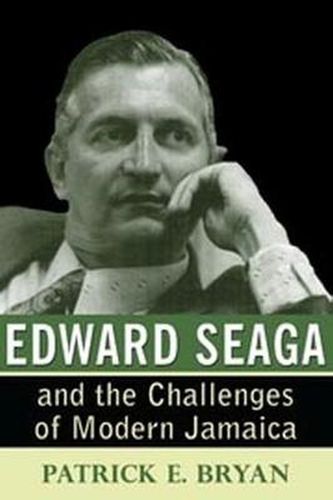Readings Newsletter
Become a Readings Member to make your shopping experience even easier.
Sign in or sign up for free!
You’re not far away from qualifying for FREE standard shipping within Australia
You’ve qualified for FREE standard shipping within Australia
The cart is loading…






This is the first scholarly biography of Edward Philip George Seaga, retired prime minister of Jamaica (1980-1989) and former leader of the Jamaica Labour Party (1974-2005). Patrick Bryan examines Seaga in light of the twentieth-century history of Jamaica, which experienced the challenges of race, colour, economic dependence, the transition from the British colonial period to independence in 1962, and the challenges of creating a Jamaican national state and separate cultural identity. Although the study focuses on Edward Seaga, the historical forces that shaped Jamaica’s history are central, in particular the way in which he confronted these forces. In placing Seaga in historical perspective, this work strikes a seasoned and balanced analysis of the man and is neither an apologia nor iconoclastic. Based on a variety of primary sources, government records, interviews and secondary sources, the author paints a compelling portrait of a complex man, a contradictory mixture of idealism and pragmatism, but, above all, a Jamaican nationalist who had a profound impact on Jamaican politics, tourism, culture and finance.
$9.00 standard shipping within Australia
FREE standard shipping within Australia for orders over $100.00
Express & International shipping calculated at checkout
This is the first scholarly biography of Edward Philip George Seaga, retired prime minister of Jamaica (1980-1989) and former leader of the Jamaica Labour Party (1974-2005). Patrick Bryan examines Seaga in light of the twentieth-century history of Jamaica, which experienced the challenges of race, colour, economic dependence, the transition from the British colonial period to independence in 1962, and the challenges of creating a Jamaican national state and separate cultural identity. Although the study focuses on Edward Seaga, the historical forces that shaped Jamaica’s history are central, in particular the way in which he confronted these forces. In placing Seaga in historical perspective, this work strikes a seasoned and balanced analysis of the man and is neither an apologia nor iconoclastic. Based on a variety of primary sources, government records, interviews and secondary sources, the author paints a compelling portrait of a complex man, a contradictory mixture of idealism and pragmatism, but, above all, a Jamaican nationalist who had a profound impact on Jamaican politics, tourism, culture and finance.